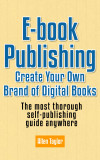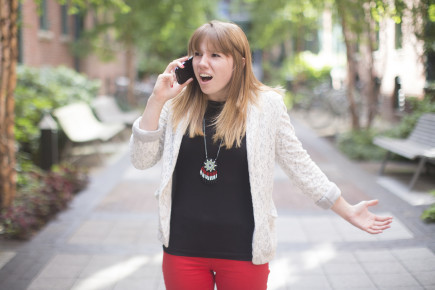Why You Can’t Find a Willing Partner For Your Book Publishing Project
How to Increase Your Local Business’s Website’s SEO

E-Book Publishing: It’s Time To Go Out On Your Own
It’s tempting, I know. You find someone with the same interests you have. After looking over their blog and website, inspecting their social media profiles, and doing a fair amount of due diligence, you’ve determined they’d make a great partner for your book project. They can help you reach your audience more effectively, and maybe even more quickly. It seems like the perfect partnership. But they’re not interested.
It’s happened to me a few times. Frustrating, huh?
At this point, you might be asking, “What am I doing wrong? Why can’t I find a partner?”
There is a reason you keep getting rejected, and not that I want to punch you in the groin, but you’re that reason. The good news is, you can fix it.
What do you have to do to make yourself partner-worthy for your book publishing project? Read on. I’m going to spill the beans.
Why You Are Not a Good Publishing Partner
Merely asking the question of someone with whom you have no prior relationship comes off as spammy and somewhat creepy.
Instead of asking what others can do for you, try asking what you can do for others.
It’s a slight shift in thinking, but a very important one.
When you identify someone you think would be a good partner for your book project, before you do anything else, ask yourself this question, “What can I do to help this person reach their goals?”
If you don’t know the answer to that question, the best thing to do is ask.
Of course, it can be awkward to send an e-mail to someone out of the blue to ask them, “How can I help you reach your goals”? Merely asking the question of someone with whom you have no prior relationship comes off as spammy and somewhat creepy. So let’s take a step backward for a minute and see what needs to happen before you start asking people how you can help them. What are the preceding steps to take in order to maneuver yourself into a position where you are qualified to ask that question? Let’s take it from the top, shall we?
Laying the Groundwork For a Partnership
Before you can interest someone in your publishing project, you must first interest yourself in theirs. But that’s not all. You must also interest yourself in them. And that’s fairly easy to do.
Start your search for a potential publishing partner with these easy-to-perform social tasks:
- Follow your prospective partner on all social media profiles where you are both active
- Share, retweet, and like their posts on those social media sites
- Interact with them on those sites in a friendly but professional manner
- Read every blog post they write and comment on them
- Share their blog posts with your social media followers
See what you are doing here? You are building a relationship. It’s not an overnight process. If you’ve ever built a relationship before, then you know it takes time. You don’t walk up to random people on the street and ask them to marry you. In fact, chances are, you don’t walk up to random people and ask for a date. You first interact with them in an appropriate manner based on the venue. If you are at a bar, you buy them a drink. If you’re at a party, you laugh and joke with them a little bit and remember the manners mama taught you. If it’s a business situation, you follow the rules of professional etiquette for your profession. Eventually, once they’ve learned to trust you, you can take your relationship a step deeper. Over time, if all things fall into place just right, you reach a point where you can build each other up through mutually beneficial gestures that enhance the social or professional positioning of both of you in a meaningful way.
Any work you do online should be approached with the same attitude that you would have toward it in the real world. Just because you met someone on a social media website or through a blog comment doesn’t mean that the rules change. You must build your relationship one small step at a time.
How to Become a Good Publishing Partner
 Just because you’ve developed a positive relationship with someone doesn’t make you a good partner. Two things must occur before you should consider yourself a good partner for someone else on any business transaction. Those two things are:
Just because you’ve developed a positive relationship with someone doesn’t make you a good partner. Two things must occur before you should consider yourself a good partner for someone else on any business transaction. Those two things are:
- You must have something of value to offer the other party
- The other party must have something of equal value to offer you
Notice two things about those two things. First, what you have to offer the other party comes before what the other party has to offer you. If you have not thought about what you bring to the table for any potential partnership, then you should not consider the partnership. What you offer has to be of value to the other party. Simply offering your writing ability, or editing ability, or (fill in the blank) is not enough. The other party must consider what you have to offer valuable enough that they are willing to give something up to receive it from you.
The second thing you should notice about those two things is that what you and your potential partner have to offer each other must be of equal value. Otherwise, your partnership will be unequal and one of you will end up with the short end of the stick.
So how do you know 1) that what you have to offer the other party is valuable to them; and 2) that what you have to offer them is of equal value to what they have to offer you?
How to Evaluate a Potential Partner
When you do get around to evaluating your potential partner, focus on looking for two things–their greatest skills and their biggest weaknesses. These should be easy to identify if you do your homework.
In other words, before you evaluate a potential partner you should evaluate yourself. What makes you a good partner for someone else? At this point, you should not concern yourself with what makes you a good partner for some specific individual. Your concern here is, what makes you a good potential partner for anyone? If you can’t answer that question, then you have nothing to offer to a potential partnership and certainly not to the specific individual with whom you’d like to partner.
Only after your stringent self-assessment should you consider what someone else might have to offer you. By this time you should have identified your own weaknesses. You should know what you lack, which is important in evaluating a potential partner.
More importantly, you should know what your greatest strengths are, which are the skills that you have to offer your partner. If your partner possesses those same skills and considers those skills his greatest strengths, then you are going to butt heads and be unproductive in your partnership. That is why it is important to be brutally honest in your self-evaluation.
When you do get around to evaluating your potential partner, focus on looking for two things–their greatest skills and their biggest weaknesses. These should be easy to identify if you do your homework.
So how do you evaluate your potential partner to determine their strengths and weaknesses? Here’s what you have to do:
- Read all of their social media posts. Go back as far as you are able. I recommend at least six months, but a year is better. How often do they post? When they post, what do they post about? Do they do a lot of self-promotion or do they spend most of their time promoting others? Do they post the same items on all of their social media accounts and, if so, do they alter how they post those items or is everything verbatim across the board? Are their aspects of their niche that they leave untouched or cover inadequately? Keep copious notes on what you find because these are your negotiating points when you do finally approach them about a potential partnership.
- Evaluate their blog. Do they post to it every day? Do they tend to post at the same time on days when they do post? What topics do they cover? Are there topics they don’t cover that you are knowledgeable about? Are there topics they write about that you can cover more thoroughly? Again, take notes and write it all down.
- Subscribe to their newsletter. Why would someone want to partner with you if you have not subscribed to their most important sales tools? Show your interest in them by subscribing to their newsletter, and read every issue. You want a sense of their style and what interests them. Believe me, they will know. Not only are you showing your faith by subscribing and reading their newsletters, but you are also evaluating the content just as you evaluate the social media and blog content they publish. Make a note of where they succeed and where they need the most help.
- Read their books. You do not necessarily have to buy every book your potential partner has written, but you should be familiar with their style and the topics they write about. As before, look for what sets them apart. What are their strengths and weaknesses as an author?
- If they have e-courses, take one. Once more, evaluate those courses to determine what their strengths and weaknesses are.
Only after evaluating a potential partner and you have a good handle on what their (and your) strengths and weaknesses are, only then should you think about approaching them for a potential partnership.
How to Approach a Potential Partner
 Now that you’ve done your homework, how should you approach a potential partner to present your proposed deal? Most people simply send an e-mail that reads something like this:
Now that you’ve done your homework, how should you approach a potential partner to present your proposed deal? Most people simply send an e-mail that reads something like this:
Dear Allen,
I am contacting you to propose a potential partnership on a publishing deal. I am writing an e-book on social media and notice that you have some experience in this area, as well. The book will be about 60 pages in length. I am looking for someone to edit the book and help me publish it in exchange for half the profits. By getting started now, we can get a head start on the year and position ourselves as an authoritative voice in this dynamic field.
When I started writing this manuscript, I was hired by _____________________ to design their social media strategy. Based in _____________, I am originally from ___________________.
I look forward to hearing back from you soon. Thank you.
Signed,
XXXXXXXXX
There are several problems with this approach. First, the first sentence is presumptive. If you do not have a prior relationship with the recipient of your request, then it will not be well received. You have not earned the right to make the request. Secondly, do you have any expertise in the subject matter you are writing about? If not, then it doesn’t matter what kind of deal you are offering. A book on any topic by someone with no demonstrated expertise is not going to sell well in any market. Thirdly, asking a stranger to edit your book for free in exchange for potential profits is a huge slap in the face, especially if you have not taken the time to build a relationship with your potential partner.
These problems can be solved by following the above protocol on evaluating yourself and your potential partner to determine whether or not you have anything to offer each other. Then, what you find in those evaluations can be presented in your publishing deal offer.
When you do send your publishing partnership offer to your potential partner, structure your request in such a way that it is easy for the recipient to say yes to. Think of it in the same terms as a query letter to a magazine editor. What information would that editor want to know in order to say “Yes” to your proposal? That’s the information you present in your letter. By the same token, a potential publishing partner will want to know specific information about certain things before they will even consider partnering with you. At a minimum, they will want to know about:
- Your experience with the subject matter. What makes you an expert? What are your accomplishments, professional achievements, educational background, etc.? What do you bring to the table that would make someone want to partner with you? Simply having written a book is not enough. What did you do before you decided to write a book?
- What is the market for your book? Who is your intended audience? Define the ideal readership for your book. Is it for teens? Business professionals? Women over 30? Be as specific as possible.
- What other books on the topic are currently on the market and how does your book differ from those? A potential partner is going to want to know that you are not simply rehashing what has already been published (and probably better). Have you found a hole in the market? Make that an explicit selling point in your proposal.
- Why are you seeking a partner? What do you hope to gain from a partnership? In other words, what are you lacking that your potential partner can provide to make your publishing project a success
- Finally, what are you offering in exchange for the skills your potential partner will bring to the table? Be very specific. Leave no room for misunderstanding. Vagueness will kill any chances you might have ever had in getting the partnership you want. If what you offer is not at least as valuable as what you are asking your potential partner to contribute, it will not be well received. You have to be specific.
Now that you have an idea about how to approach your potential partner, how about an example? Let’s rewrite the above proposal and put it into terms that will be beneficial to the requester as well as (and more importantly) the receiver.
Dear Allen,
I’ve been following you on Twitter, Google+, and LinkedIn for over a year now and really like the posts you share on independent publishing and social promotion. I admire your knowledge on both topics. I have been working in the area of social media for eight years and have worked with several authors on promoting their books. Three of my authors have achieved best seller status as a result of my efforts.
In writing a book on social media for authors, I realized that there are very few books on the subject that specifically address the challenges of independent authors. I noticed some of these differences in working with _________________, the last author I pushed to Amazon’s #1 ranking in their specialty.
I am seeking a publishing partner with a background in independent publishing and, after reading your blog, newsletter and social media posts, as well as some of your e-books and one of your e-courses, I’ve become impressed with your depth of knowledge on a subject about which I have limited knowledge. I believe we’d make good partners for this project and would like to schedule a meeting to discuss how we can be of mutual benefit. I am willing to offer you 50% profits and a co-byline in exchange for your knowledge of independent publishing. I’d like you to write a couple of chapters and edit the entire book; I’ll take care of everything else. We’ll share in the promotional efforts, of course.
If this arrangement interests you, please contact me at xxx-xxx-xxxx or Skype me at xxxxxxxxx at your convenience. Thank you for your consideration.
Signed,
XXXXXXXXX
I hope you see the difference between this approach and the earlier approach. The first sentence is meant to capture the attention of your potential partner by letting them know you are a fan of theirs. Then, without ado, you establish your own authority while drawing a clear distinction between your own areas of knowledge and those of your potential partner’s. You then have a clear reason for requesting a partnership. But before you close the letter, you should elaborate very clearly on what the specifics of your proposal are–what you want in exchange for what you are willing to offer (which must be of equal value and reasonable).
If you take this approach, there is no guarantee that you will find the partner that you are seeking, but your chances of attracting the kind of partner you desire, and deserve, increase greatly because you show that you have prepared for the partnership rather than simply sending out an e-mail off the cuff to a total stranger.
Good luck in your future publishing endeavors. And may you find as good a partner as you are willing to be.
 Are you ready to boost your authority? Looking for ways to expand your reach and deliver the best content for your niche audience? Download my free report, “14 Types of Authority Content.” Learn the 14 types of content that will keep your audience coming back for more and instantly make you an authority they can rely on.
Are you ready to boost your authority? Looking for ways to expand your reach and deliver the best content for your niche audience? Download my free report, “14 Types of Authority Content.” Learn the 14 types of content that will keep your audience coming back for more and instantly make you an authority they can rely on.


